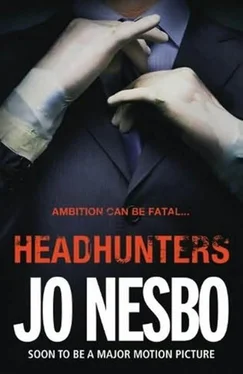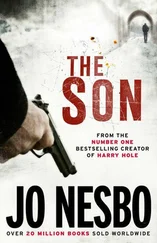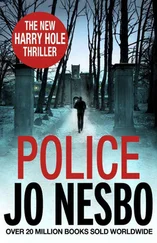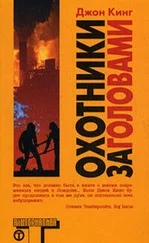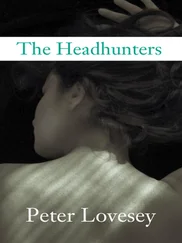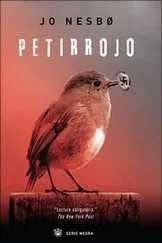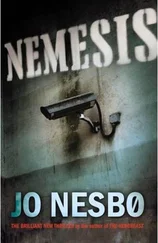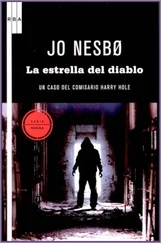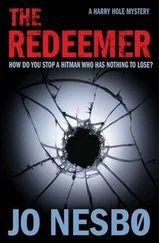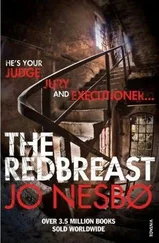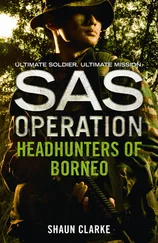‘An oil painting. I found it in a hidden room behind the kitchen. No one in the family knew my grandmother had it.’
‘Interesting,’ I said, feeling my heart give a curious jump. Must have been from the tension earlier in the day. ‘What’s the painting?’
He studied me for a long time. A tiny smile stole onto his mouth. He formed his lips to answer, and I had a strange premonition. A premonition that made my stomach recoil like a boxer’s abdominal muscles do when they see a blow coming. But his lips changed shape. And all the premonitions in the world could not have prepared me for his reply.
‘ The Calydonian Boar Hunt .’
‘ The …’ In two seconds my mouth had gone as dry as dust. ‘ The Boar Hunt ?’
‘Do you know anything about it?’
‘If you mean the picture by… by…’
‘Peter Paul Rubens,’ Greve completed.
I concentrated on one thing only. Keeping the mask. But something was flashing in front of me, like a scoreboard in the London fog in Loftus Road: QPR had just lobbed the ball into the top corner. Life had been turned upside down. We were on our way to Wembley.
‘PETER PAUL RUBENS.’
For a moment it was as if all movement, all sound in the room had been frozen. The Calydonian Boar Hunt by Peter Paul Rubens. The sensible assumption would of course be that this was a reproduction, a famous, fantastically good forgery that in itself might be worth a million or two. However, there was something in his voice, something about the stress, something about this person, Clas Greve, that left me in no doubt. It was the original, the bloody hunting motif of Greek mythology, the fantasy animal pierced by Meleager’s spear, the painting that had been lost since the Germans plundered the gallery in Rubens’s home town of Antwerp in 1941 and which until the end of the war people had believed and hoped was in some Berlin bunker. I am no great art connoisseur, but for natural reasons I sometimes had occasion to go onto the Net and check the lists of missing and sought-after art. And this painting had headed the top ten for the last sixty years, eventually more as a curiosity since it was thought that it had been burned up together with half of the German capital. My tongue endeavoured to gather moisture from my palate.
‘You just found a painting by Peter Paul Rubens in a hidden room behind the kitchen in your deceased grandmother’s apartment?’
Greve nodded with a grin. ‘This sort of thing can happen, I have heard. Now, it’s not his best or his best-known painting, but it must be worth something.’
I nodded without speaking. Fifty million? A hundred? At least. Another of Rubens’s rediscovered paintings, The Massacre of the Innocents , had gone for fifty million at an auction just a few years ago. Pounds sterling. Over half a billion kroner. I needed water.
‘By the way, it wasn’t a complete bolt out of the blue that she had hidden art,’ Greve said. ‘You see, my grandmother was very beautiful when she was young, and like almost all of Oslo high society she fraternised with the top German officers during the Occupation. Especially with one of them, a colonel who was interested in art, and who she often told me about when I lived here. She said he’d given her some paintings to hide for him until the war was over. Unfortunately he was executed by members of the Resistance in the last days of the hostilities, people who, ironically enough, had drunk his champagne when times had been better for the Germans. In fact, I didn’t believe most of my grandmother’s stories. Right up until the Polish builders found this door behind the shelving in the maid’s room inside the kitchen.’
‘Fantastic,’ I whispered involuntarily.
‘Isn’t it? I haven’t checked if it is the original yet, but…’
But it is, I thought. German colonels didn’t collect reproductions.
‘Your builders didn’t see the picture?’ I asked.
‘Yes, they did. But I doubt they knew what it was.’
‘Don’t say that. Is there an alarm in the flat?’
‘I hear what you’re saying. And the answer is yes. All the flats in the block use the same security company. And none of the builders has a key since they only work between eight and four in accordance with the house rules. And when they’re there, I’m generally with them.’
‘I think you should continue to do that. Do you know which company the block uses?’
‘Trio something or other. In fact, I was thinking of asking your wife if she knows anyone who can help me to determine whether it’s an original Rubens or not. You’re the first person I’ve spoken to about this. I hope you won’t mention it to anyone.’
‘Of course not. I’ll ask her and ring you back.’
‘Thank you, I’d appreciate that. For the time being, I only know that if it is genuine, it’s not one of his best-known pictures.’
I flashed a fleeting smile. ‘Such a shame. But back to the job. I like to strike while the iron is hot. Which day could you meet Pathfinder?’
‘Any day you wish.’
‘Good.’ My mind whirled as I looked down at my diary. Builders there from eight to four. ‘It suits Pathfinder best if they can come into Oslo after working hours. Horten’s a good hour’s drive away, so if we find a day this week at about six, would that be alright?’ I said it as lightly as I could, but my off-key tone grated.
‘Fine,’ said Greve, who didn’t seem to have picked up anything. ‘As long as it’s not tomorrow, that is,’ he added, getting to his feet.
‘That would be too short notice for them, anyway,’ I said. ‘I’ll ring the number you gave me.’
I escorted him out to reception. ‘Could you order a taxi, please, Da?’ I tried to read from Oda’s or Ida’s face whether she was comfortable with the abbreviation but was interrupted by Greve.
‘Thank you. I have my own car here. Regards to your wife, and I’ll wait to hear from you.’
He proffered his hand, and I shook it with a broad smile. ‘I’ll try to ring you tonight, because you’re busy tomorrow, aren’t you?’
‘Yes.’
I don’t know why I didn’t stop there. The rhythm of the conversation, the sense that an exchange was over told me that it was here I should say the closing ‘Goodbye’. Perhaps it was a gut feeling, a premonition; perhaps a terror that had already implanted itself in me, which made me extra careful.
‘Yeah, decoration is a pretty all-engrossing activity,’ I said.
‘It’s not that,’ he said. ‘I’m catching the early-morning plane to Rotterdam tomorrow. To get the dog. He’s been stuck in quarantine. I won’t be back until late evening.’
‘Oh yes,’ I said, releasing his hand so that he wouldn’t notice how I had stiffened. ‘What breed of dog is it?’
‘Niether terrier. Tracker dog. But as aggressive as a fighting dog. Good to have in the house when you have pictures like this up on the walls, don’t you think?’
‘Indeed,’ I said. ‘Indeed it is.’
A dog. I hated dogs.
‘I see,’ I heard Ove Kjikerud say at the other end of the line. ‘Clas Greve, Oscars gate 25. I’ve got the key here. Handover at Sushi &Coffee in an hour. The alarm is deactivated at seventeen hundred hours tomorrow. I’ll have to find a pretext for working in the afternoon. Why such short notice by the way?’
‘Because after tomorrow there’ll be a dog in the flat.’
‘OK. But why not during working hours, as usual?’
The young man in the Corneliani suit and geek-chic glasses came along the pavement towards the public telephone box. I turned my back on him to avoid a greeting and pressed my mouth closer to the receiver.
Читать дальше
